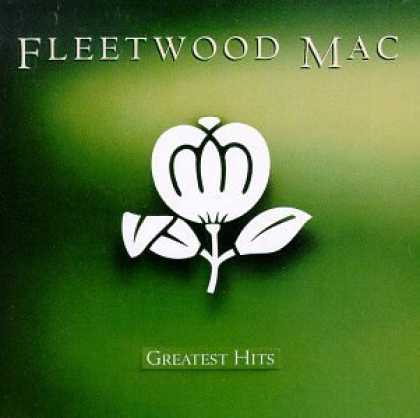
Greatest Hits (1988)

1. Rhiannon
2. Don't Stop
3. Go Your Own Way
4. Hold Me
5. Everywhere
6. Gypsy
7. You Make Loving Fun
8. As Long as You Follow
9. Dreams
10.Say You Love Me
11.Tusk
12.Little Lies
13.Sara
14.Big Love
15.Over My Head
16.No Questions Asked
If the late 1970s and early '80s marked the commercial zenith of Fleetwood Mac, then Greatest Hits—released in 1988—arrived as a tidy, chart-topping souvenir from that era. It focuses exclusively on the Buckingham-Nicks-McVie years (1975–1988), neatly omitting the bluesy past and any subsequent reinventions. What remains is an expertly sequenced collection of melodic riches—part career summary, part gateway drug for the uninitiated.
And what a run it was. From the crystalline harmonies of Rhiannon and You Make Loving Fun to the rhythmic intricacies of Big Love and Everywhere, this compilation serves as a reminder of just how many hits this lineup generated—and how varied they were in tone and texture. It’s an impressive stretch, particularly considering the band’s internal drama was often more newsworthy than their music. That they not only endured but flourished through it all is part of what makes this material feel so enduring.
Unlike many so-called “greatest hits” compilations that are cobbled together with the cold detachment of a label’s marketing team, this one feels curated with care. There’s a pleasing flow to the sequencing, and while a few fan favorites (Seven Wonders, Think About Me) are notably absent, the omissions don’t sabotage the whole. It’s a matter of quibbling over details in what is otherwise a very solid package.
Of particular note are the two new tracks—often a death knell for compilations, but here they’re refreshingly worthwhile. Christine McVie contributes As Long As You Follow, a gracefully understated number that could have comfortably nestled into Tango in the Night. Stevie Nicks, meanwhile, offers No Questions Asked, a perfectly respectable entry that may not crack the upper echelon of her catalog but doesn’t tarnish it either. Including both was a wise move—new enough to intrigue completists, strong enough to earn their place.
It’s also worth noting how this release, strategically timed just ahead of Buckingham’s departure, inadvertently bookended the era it celebrated. With him gone, the band would venture into less consistent territory, making Greatest Hits feel, in retrospect, like a closing chapter.
For fans who already owned the studio albums, this release was still difficult to resist—if only for its convenience, cohesion, and just enough new content to justify the purchase. For everyone else, it was (and remains) a near-perfect introduction to one of the most distinctive and successful pop-rock groups of the era.
Go back to the main page
Go To Next Review